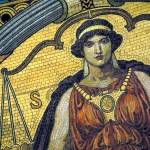Questions of Professionalism
I’ve been thinking about professionalism lately. Two discussions in the past week or so have stuck with me.
The first discussion appeared in the Law Librarian Blog (thank you, Professor O’Brien, for forwarding it.) In Florida, U.S. District Court Judge Gregory Presnell issued an order denying a plaintiff’s motion for voluntary dismissal for
Failing to comply with Local Rule 3.01(g), for failing to secure a stipulation of dismissal from Defendant pursuant to FED. R. CIV. 41 (a)(ii), and for otherwise being riddled with unprofessional grammatical and typographical errors that nearly render the entire Motion incomprehensible.


 Who knew you could learn so much about jurisprudence from the NFL rulebook? In a
Who knew you could learn so much about jurisprudence from the NFL rulebook? In a